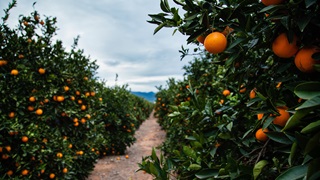
Publication
Canada: Agribusinesses tackle new challenges in employing foreign workers
Agribusinesses traditionally rely on temporary foreign workers (TFWs) to fulfill operational needs. COVID-19 poses new challenges for these businesses.


Global | Publication | October 2020
The COVID-19 pandemic has had an unprecedented effect on society and the global economy. It has created a new awakening among consumers about the importance of food security, food safety and ensuring proper commodity and food supply chains are in place which utilize safe, locally-sourced commodities and foods. In this section, we explore some of the legal and regulatory changes and challenges that are affecting food companies and agribusinesses all along the value chain from foreign worker mobility and accommodation restrictions, constrains on the supply of certain foreign-sourced products globally, trade disruptions, new protectionist and anti-trust policy developments, and important clarifications with respect to employee health and safety standards.

Publication
Agribusinesses traditionally rely on temporary foreign workers (TFWs) to fulfill operational needs. COVID-19 poses new challenges for these businesses.

Publication
As Canadians continue to self-isolate and eat more meals at home, demands on Canada’s grocery stores and food manufacturers have dramatically increased.

Publication
Following on the heels of new federal support programs for producers employing temporary foreign workers (TFWs), several provinces have announced initiatives to assist agribusinesses faced with an expected shortage in farm workers.

Publication
In the past decade the video gaming industry has grown immensely. This, in combination with a number of unique factors, makes the video gaming industry a very interesting target for cyber criminals.

Publication
On August 1, 2025, the UK Supreme Court delivered its long-awaited judgment in Hopcraft v Close Brothers Limited and on 3 August the FCA announced it would consult on a redress scheme.
Publication
The Regional Court of Munich (LG München I) has issued a landmark judgment in GEMA v OpenAI (Case No. 42 O 14139/24), holding that the use of copyrighted song lyrics for training generative AI models without a licence violates German copyright law.
Subscribe and stay up to date with the latest legal news, information and events . . .
© Norton Rose Fulbright LLP 2025